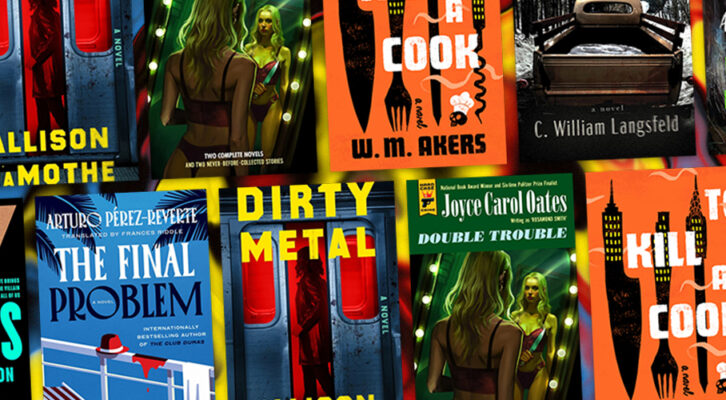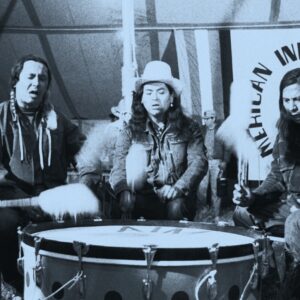
My Mother is Gone, But Her Edits Remain
On Grief, Writing, and Jhumpa Lahiri
It’s been three years now since my mother’s death, and I’m still wondering why I haven’t spoken with her in so long. There’s a feeling of unreality about the whole thing; it’s hard to believe that someone so loved, so deeply a part of who I am, could disappear, could fall so utterly silent in my life. I wonder why I haven’t picked up the phone. It must be that I’m becoming a bad daughter. There is no other reasonable explanation.
A rare cancer took my mother’s life at 62, after a two-year fight with raze-the-earth surgery and punishing rounds of chemotherapy, after disease and its treatment had hollowed her face into steep caverns, taken her hair and her tastebuds. I can’t remember anymore what the cancer was responsible for and what the medicine did; it’s all the same to me now. I look at the photographs on the piano of our old house, or pick up the skeins of wool that I inherited—beautiful, expensive, colorful—and I wonder what to do with it all, when I can barely knit a scarf. I start wishing I’d asked her how to knit on the round. I wish I knew. I wish I’d let her teach me one or ten or 100 things more. Now I am knitting a pair of wrist warmers, trying to make good use of the yarn, and in the dim light of my apartment I see her sitting beside me, her hands working busily on the sweater, tugging and pulling it into shape. Same light blue eyes as mine, same ski-jump nose. The redheads of the family. The lefties. These are irrational things to be proud of but I am proud. Now she pulls the yarn like a cat’s cradle between her hands and asks me to read to her. Another page of Howard’s End or the newest story by Jhumpa Lahiri. We read together while she knits or sews, and both of us listen and judge.
There were her notes on the title page: “Lots of detail, but I’m not interested in it. Too mundane. Every story is about unhappy women.”
She was a tough critic. A year after her death I opened one of the many books I’d inherited from her—it was Jhumpa Lahiri’s Interpreter of Maladies—and felt my heart lurch to see her familiar handwriting. There were her notes on the title page: “Lots of detail, but I’m not interested in it. Too mundane. Every story is about unhappy women.”
Just looking at the ballpoint jottings on the page, I could see her writing out the words—see her tilt the page sideways and write with her arm crooked, moving down the page in columns as though writing Japanese. The half-cursive with its b’s and l’s standing out. As unique as a fingerprint. I hoard evidence of her handwriting, on birthday cards or grocery lists or receipts. I cannot throw a single instance of it away.
Maybe more than anything else, I miss the love of writing that we shared. She was the most tireless champion of my writing and always my first reader. In elementary school, I’d run breathlessly to her desk, holding out a new story I’d written, and she would cover it in blue pen. No comma splices! Is this really the right word? Don’t take three tries to say one thing! Patiently she’d show me how two sentences could be unhitched from their bland verbs like horses from a cart and lashed together. I’d print out another copy, run back, get more scribblings covering my own. Run to the family computer. Do it again. We could do this all day. In college writing workshop assignments, I’d send her a story to read the night before it was due. I’d wait to hear her thoughts, to receive her benediction. Even after the story was workshopped, or once it appeared in a literary magazine, it didn’t feel real until I knew that she had read it, until I got the email or the call telling me it was good, my best yet, that I was a real writer now.
We shared stories and wrote them together. My mother’s stories appeared in a handful of magazines. From her writing I learned about a camping trip with a boy she liked in college where they both got lost and had to be rescued by park rangers. I learned that she’d been engaged to another man before she met my father, and sent the ring back within a week of meeting him. What moxie! What pluck! I loved the glamour and the derring-do of her life before me.
She’d raised me on a diet of books, on the sound and taste and feel of the words they contained, as well as their sensory pleasures. Whenever she got a new one, she’d crack open the spine, press her nose deep into the binding and smell it. I still do that too.
I dug through Lahiri’s stories, looking for more notes from her. I wanted to know what she had loved. There were no more notes, but I found a few shaky underlines, highlighting some of Lahiri’s best sentences. In a department store scene: “She took the escalator to the main part of the store, to the cosmetics department, where soaps and creams were displayed like jewels, and eye shadows and powders shimmered like butterflies pinned behind protective glass.” And a few pages later: “He was the first to bring her a bouquet of flowers so immense she’d had to split it up into all six of her drinking glasses, and the first to whisper her name again and again when they made love.” In the title story, she selected, “He found nothing noble in interpreting people’s maladies, assiduously translating the symptoms of so many swollen bones, countless cramps of bellies and bowels, spots on people’s palms that changed color, shape, or size.” Later in another story, an American character dating a Bengali-American man tries to write her own name in her lover’s language. Underlined was “It was a scribble to her, but somewhere in the world, she realized with a shock, it meant something.” Beauty and strangeness and tenderness. Clear, precise, lovely language, slipping like water down your throat. I pressed the underlined pages to my nose so I could smell them. They were secret, final communiqués. See, she was telling me. This is what you must do.
* * * *
There’s a whole life that I wish I knew—my mother’s childhood growing up on Long Island, college in Chicago, stories she was planning about her life that she never wrote. I wish she knew that I live in Chicago now. She’d tell me the good places to go, the things to watch out for. She’d offer her interpretations of the city. At a long, sad dinner with her oldest childhood friend soon after her death, during which we forget to finish the wine, during which we never look at my father sitting in his usual spot at the head of the table, we laugh in a shaky, exhausted way. Her friend tells us about when they were teenagers and my mother wanted a pea coat, a real one, from the Army/Navy surplus store in Times Square. They weren’t allowed to go alone; Times Square was dirty and dangerous then—but my mother said, “We’ll sneak onto the LIRR. We’ll just walk fast and not look to the left or right.” They powered down Broadway and my mother got her real coat. I create the memory like it’s my own; I can see her, young and fearless, walking fast. But I wish I could ask her what it was like. Each new story I learn makes me want more. That’s why these scribbled notes in the margins of a book are precious; they are a message, the mind of my mother in ballpoint pen.
* * * *
Our regular hospice nurse, the kindly, formal Russian doctor studying for his American certification, went on vacation in the last week of my mother’s life. When she died, a strange nurse we did not know arrived at the house, and took her pulse while we sat numbly in the chairs surrounding her bed. She was large and bustling and cheerful, too swift and efficient. She tskked briskly to herself, then announced, “Oh yes, she’s in heaven now.”
I thought I wasn’t able to feel anything, was far away from emotion, but this one innocuous, well-meaning statement made anger rush into me. I was stunned by how suddenly, wildly angry I felt. My parents were entirely secular, were adamantly anti-religion, despised the way religion divided families, caused hurt, foolishness, magical thinking. I wanted to scream at this strange cheerful nurse packing medical equipment away into her bag. I hated her in that moment. I know it was meant as comfort. But her misguided statement was a chance for me to feel something. An outlet, for all the hurt and rage. My mother in her silence was unable to object, to offer her interpretation of what had happened or where she had gone.
* * * *
What they don’t tell you about death—or what you don’t really understand until it happens close to you—is how permanent it is. In the months afterward I kept thinking to myself, all right, I get it. This is too painful. Let’s just take a little break from the loss. Let’s have a weekend off. A day. Or an hour. Just one hour when it’s not true, when she is allowed to speak to me, or to rub an absent-minded hand through my hair. But the wall is high and fissureless. There are no breaks, no time-outs. The loss is final, and the you that you were with her is nowhere, gone.
Here, though, written in Lahiri’s book, is her exegesis: a penstroke next to an image she likes, a scathing review of a story she thinks is lacking in feeling. I hunt through every book she left me, searching for more: dog ears in Iris Murdoch and backwards left-handed check marks next to the best short stories in the year-end anthology. When I photocopy the Lahiri story to teach in my creative writing classes, my students spot the underlined sentences. “You must think these are the best lines,” they say. And I don’t tell them they are not my marks and then one day, feeling lonely and nostalgic, I do. “Those are actually my mother’s favorite lines,” I tell one class. “This is from her copy.” It’s been weeks or months since I mentioned her out loud and I feel a sudden need to make her live, if only in my mouth, my eyes, my speech.
There are still a few moments I keep in a drawer in my head, that I pull out whenever I feel like punishing myself with sadness.
For the first year, numbing grief was all I could feel—the death itself. At any moment, I could bring up the images in my mind—this one, and that one—and feel the same crushing weight in my chest. There are still a few moments I keep in a drawer in my head, that I pull out whenever I feel like punishing myself with sadness. The sound of her clearing her throat in the morning. The soft veiny skin of her hands. A time when I was angry. She was already sick and I was dicing peppers in the kitchen, making hard little cuts. I had failed to do my part, to keep the house clean and make meals while she went through chemotherapy. I was a terrible daughter. My hands jerked and shuddered with the knife. She put her arms around me, saying gently, “You’re my sweet girl.”
Someday, I think, I’ll be able to open that drawer, and it won’t feel like punishment. The way pain can become familiar, can become a friend.
* * * *
Three years later, now I find myself wondering what she would have thought about this or that, and what advice she would have had to give. I’m wishing that I had asked more questions, and wondering why I didn’t. Why can’t I remember where she said she was when JFK was assassinated? Why didn’t I ask how to hold and feed a baby? Is it like this? What if something wakes me in the night and I don’t know what to do? How do I– How do I– How do I–
Recently, flipping once again through the old copy of the Lahiri book, I realized something that made me stagger and have to sit down. The note at the front of the book was hers, but the underlines were my own. My first year of grad school, we were reading this story. I borrowed the book. I read it carefully through. Our homework was to underline our favorite sentences. They had been my busy little jottings all along. And somehow, in all the frantic tearing through of books, the searching for signs, I had forgotten. How could I have forgotten?
I was stunned by own stupidity. Those wobbly little lines, that characteristic box around the key words, the pen stroke beside a perfect paragraph. All my own habits. Stupid, stupid, stupid. I put the book back on the shelf and I backed away from it, as though it had betrayed me: a telephone wire that I thought was reaching to her was actually knotted in a loop. These things I treasured, booming in the echo chamber of my own head.
I slipped the book away onto a forgotten shelf, ashamed to look at it. In the middle of a move to a new apartment, I let it disappear in a storm of boxes. I thought I had forgotten to bring it along; as each new box was unpacked and it failed to materialize, I began to think that it was lost. That was what threw me into a panic. I had to find it again. Her words were there; how could I let them go? I searched boxes and bags. Finally, buried in the back of an old night table we’d considered throwing out, I found it. I read her critique at the beginning again. I ran my hand over the grooves of her pen in the chalky paper. And I looked at the lines I had flagged: beautiful writing, something I aspired to write myself.
My name is written on the left inside cover. And there on the right-hand page, her freewheeling hand, her interpretation. We were so close; maybe she had loved those lines too. Somehow it is still something we share, a way she is talking through me. I still can’t draw a line between where her voice is speaking to me, and where I learn to speak.
Blair Hurley
Blair Hurley is the author of The Devoted, which was longlisted for The Center for Fiction's First Novel Prize. Her second novel, Minor Prophets, was published in 2023. Her work is published in New England Review, Electric Literature, The Georgia Review, Paris Review Daily, and elsewhere. Her story “The Telepathist” was listed as a “Distinguished Story” in Best American Short Stories 2022. She is a Pushcart Prize winner and an ASME Fiction award finalist.



















